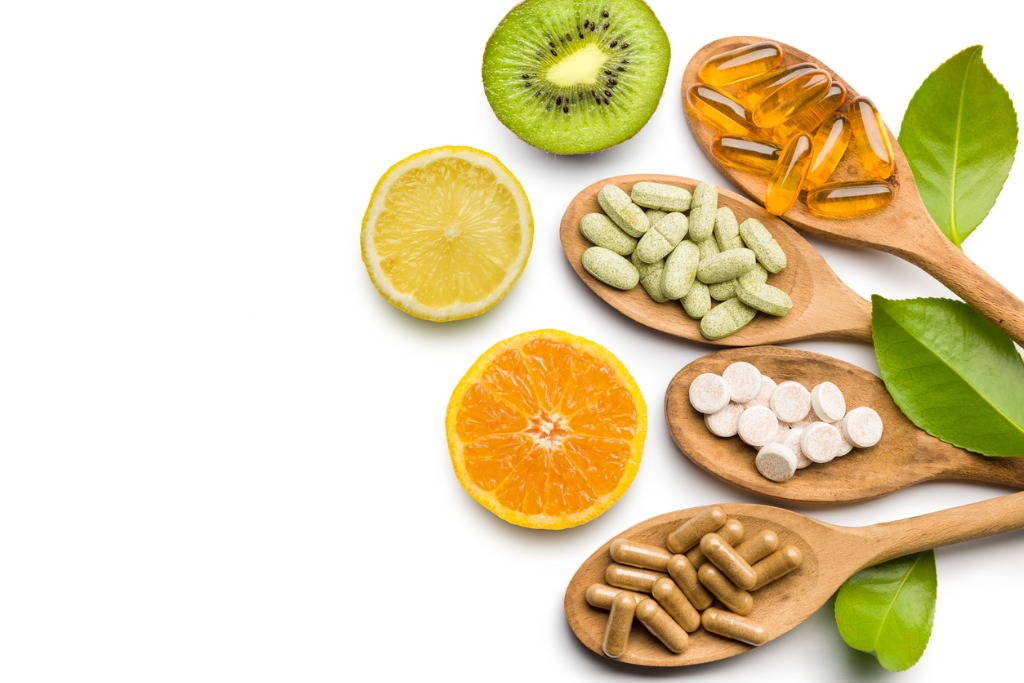
Whether it’s boosting immune health or supporting overall wellness, a growing number of adults, and children, are using supplements or natural medicines. Understanding the top supplements on the market empowers you to address patient inquiries with confidence and ensure the best possible patient care.
In this blog post, we will cover questions every healthcare provider should know how to answer about supplements, alternative medicines, or integrative therapies. Plus, a bonus free resource highlighting the answers to each question for the top 10 supplements to keep on your radar. This information is developed from NatMed, the largest evidence-based natural medicines database trusted by the National Institutes of Health (NIH) and thousands of healthcare professionals.
Key Questions Every Healthcare Provider Should Be Able to Answer about Natural Medicines and Dietary Supplements
- What is it?
Knowing what dietary supplements are ensures informed decision-making and personalized patient care. Knowing the composition, intended purpose, and potential effects of a dietary supplement allows providers to offer tailored recommendations aligned with each patient’s health needs and goals. This knowledge enables providers to identify any potential risks or interactions associated with the supplement, enabling comprehensive and safe healthcare management.
- Is this an effective therapy?
According to the Council for Responsible Nutrition’s (CRN) latest survey, 2023 CRN Consumer Survey on Dietary Supplements, 74% of U.S. adults take dietary supplements, with 55% qualifying as “regular users”. With a significant portion of the population relying on supplements and widespread misconceptions about their effectiveness, many individuals invest considerable time and money in products that may not offer tangible benefits. Therefore, understanding the efficacy of a supplement is vital for healthcare providers to guide their patients effectively.
- Is it safe?
Ensuring the safety of dietary supplements is critical for healthcare providers to safeguard patient health. Knowledge of a supplement’s safety profile enables providers to mitigate potential risks and adverse effects, minimizing harm to patients. By assessing the safety of supplements, healthcare professionals can make informed recommendations that prioritize patient well-being and prevent adverse reactions or interactions with existing medications.
- Are there any interactions with other supplements or medications?
Similar to the importance of knowing the effectiveness and safety, understanding potential interactions between dietary supplements and other medications or conditions is essential for healthcare providers to prevent adverse outcomes. Identifying interactions allows providers to adjust treatment plans accordingly, minimizing the risk of harmful reactions or diminished effectiveness of medications. By staying informed about possible interactions, healthcare professionals can ensure comprehensive patient care and optimize treatment outcomes.
We answer all these questions in our free resource on the top 10 supplements, making it easy for you to reference the information right at your fingertips.
Check Out Our Free Top 10 Supplements Resource Below
- Collagen Peptides
Collagen is a hard, insoluble protein that occurs naturally in the human body. It is found in the muscles, skin, tendons, ligaments, and connective tissues, including cartilage and bone. Read more >>
- Probiotics
Probiotics are live bacteria and yeasts that are thought to improve health. The most common are lactobacilli, bifidobacteria, and Saccharomyces boulardii. Read more >>
- Prebiotics
Prebiotics act as food for probiotics. In the colon, they are digested by good bacteria, such as lactobacilli and bifidobacteria. This helps the good bacteria to grow. The most commonly used prebiotics are a small group of carbohydrates, including inulin, fructo-oligosaccharides (FOS) and galacto-oligosaccharides (GOS). Read more >>
- Vitamin D
Vitamin D is an essential, fat-soluble vitamin that helps regulate calcium and phosphorus in the body. It’s found in foods such as fish, eggs, and fortified milk. It’s also made in the skin during brief exposure to sunlight. Read more >>
- Creatine
Creatine is a chemical that plays a role in making energy for muscles. It’s naturally made by the kidneys and liver from amino acids. It’s also found in foods such as red meat and seafood. Read more >>
- Magnesium
Magnesium is a mineral that is important for normal bone structure. It also plays an essential role in many cellular reactions in the body. It’s well-absorbed from foods. Foods that are high in fiber are generally high in magnesium. Legumes, whole grains, green leafy vegetables, seeds, and almonds are good sources. Read more >>
- Beet
Beet is a flowering perennial plant. Beetroot is commonly eaten as a vegetable and also used in supplement products. It’s a source of dietary nitrates and antioxidants. Read more >>
- Fish oil
Fish oil comes from a variety of fish, including mackerel, tuna, salmon, anchovy, and trout. It is a source of two important omega-3 fatty acids: eicosapentaenoic acid (EPA) and docosahexaenoic acid (DHA). These fatty acids reduce triglyceride levels in the blood and also prevent the blood from clotting easily. Read more >>
- Ashwagandha
Ashwagandha (Withania somnifera) is a small evergreen shrub found in dry areas of India, the Middle East, and Africa. It is a well-known adaptogen, which are substances that are believed to help the body resist physiological and psychological stress. Read more >>
- Elderberry
Elderberry is the dark purple berry from the European or Black elder tree. Elderberry extract is thought to have immune stimulating effects and to stop the replication of several strains of influenza viruses. Read more >>
For more information on our NatMed product offerings, click here.
